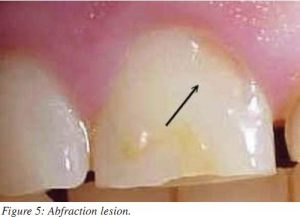No one likes to have bad breath. Typically, it’s the result of something you ate, or maybe you got stuck in traffic for an hour after that cup of coffee…In other words, it’s usually a temporary condition that can be changed as soon as you get hold of a toothbrush. Up to 50% of the population or more will experience bad breath at some point in their lives.
Avoiding Bad Breath
Poor or inefficient oral hygiene habits are probably the most common cause of bad breath – after eating garlic and onions, that is. Good oral hygiene helps to improve the health of your teeth, gums, and mouth overall.
• Brush and floss regularly – brush after every meal, and be sure to brush your tongue along with your teeth;
• Change your toothbrush regularly every three months or so, or if it becomes frayed before then;
• Take extra care to clean around dental implants, and to clean dentures at least once a day;
• Have your teeth professionally cleaned by a hygienist regularly;
• Drink water in preference to other beverages that can promote bad breath as well as tooth decay.
If your oral hygiene has been lax, making these elements daily habits should clear up the problem. But, what happens if your breath doesn’t seem to get any better? Chronic bad breath – or halitosis – can have many different causes. The good news: your dentist can help.
Bad Breath – a diagnosis
Your dentist will evaluate your bad breath. Tip: it helps to make a morning appointment in that case, to avoid your breath being contaminated with foods you may eat. Treating it depends on determining the cause.
• If it is determined that bad breath is due to a buildup of bacteria or plaque on your teeth, a toothpaste and/or mouthwash with an antibacterial agent may be a good option to enhance brushing and flossing.
• In cases of gum disease, the gums can actually begin to pull away from teeth, creating a pocket where debris and bacteria can accumulate. Professional cleaning may be required.
• Damaged or faulty dental fillings and other restorative devices, which are prime areas where bacteria can accumulate, can be replaced.
• Chronic dry mouth or xerostomia can cause bad breath. The root causes need to be determined and addressed.
• Some medications can cause bad breath.
• Oral infections can also be a cause. If you have had oral surgery, or an accident that resulted in an injury to the mouth, please let your dentist know.
• Certain conditions of the mouth and throat can cause halitosis. Small stones can form on the tonsils, which then can be covered in bacteria. Chronic inflammation of the sinuses can also lead to infection and eventually bad breath.
• Some more serious conditions such as cancer or diabetes, or gastroesophageal reflux disease (GERD) may cause bad breath. If your dentist sees any signs of these, they will recommend that you contact your doctor as soon as possible.
Looking for advice on bad breath, or any other aspect of your dental or oral health? You’ll find the answer at Dr. F. Keshavarz Dentistry in Brampton, ON.
If you’re looking for a well-regarded and highly skilled dentist in the Brampton area, make an appointment with Dr. F. Keshavarz Dentistry by calling (905)-791-3867. Visit our website to learn more about our dental services.







